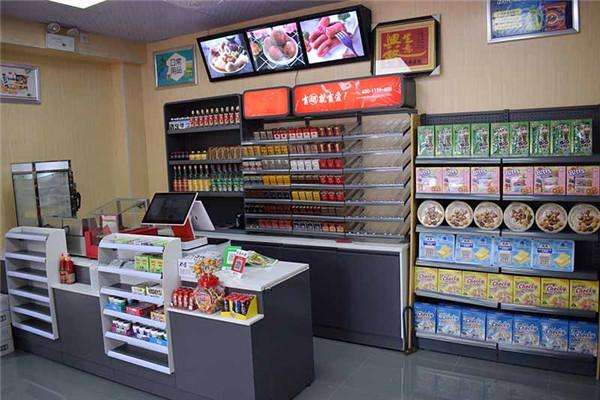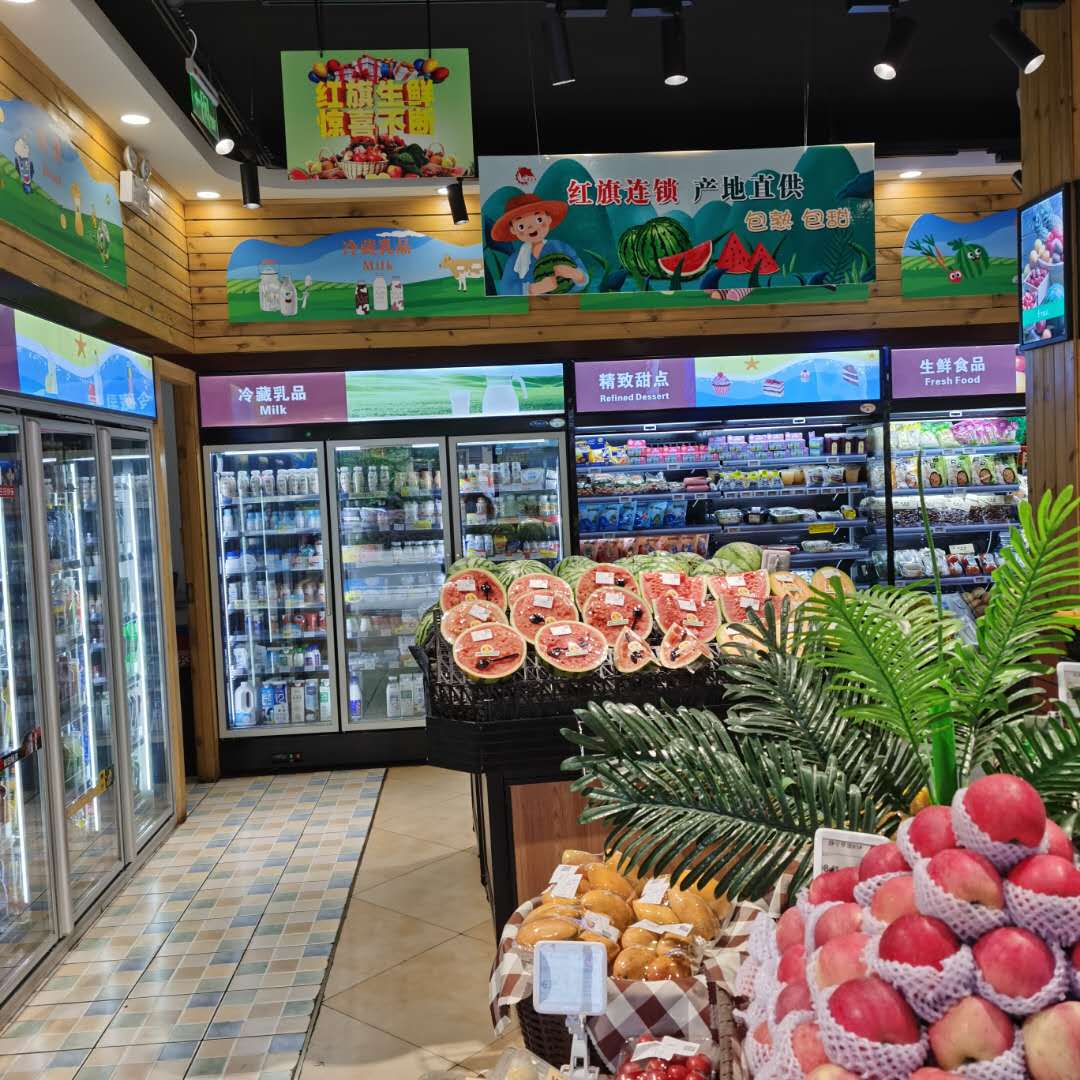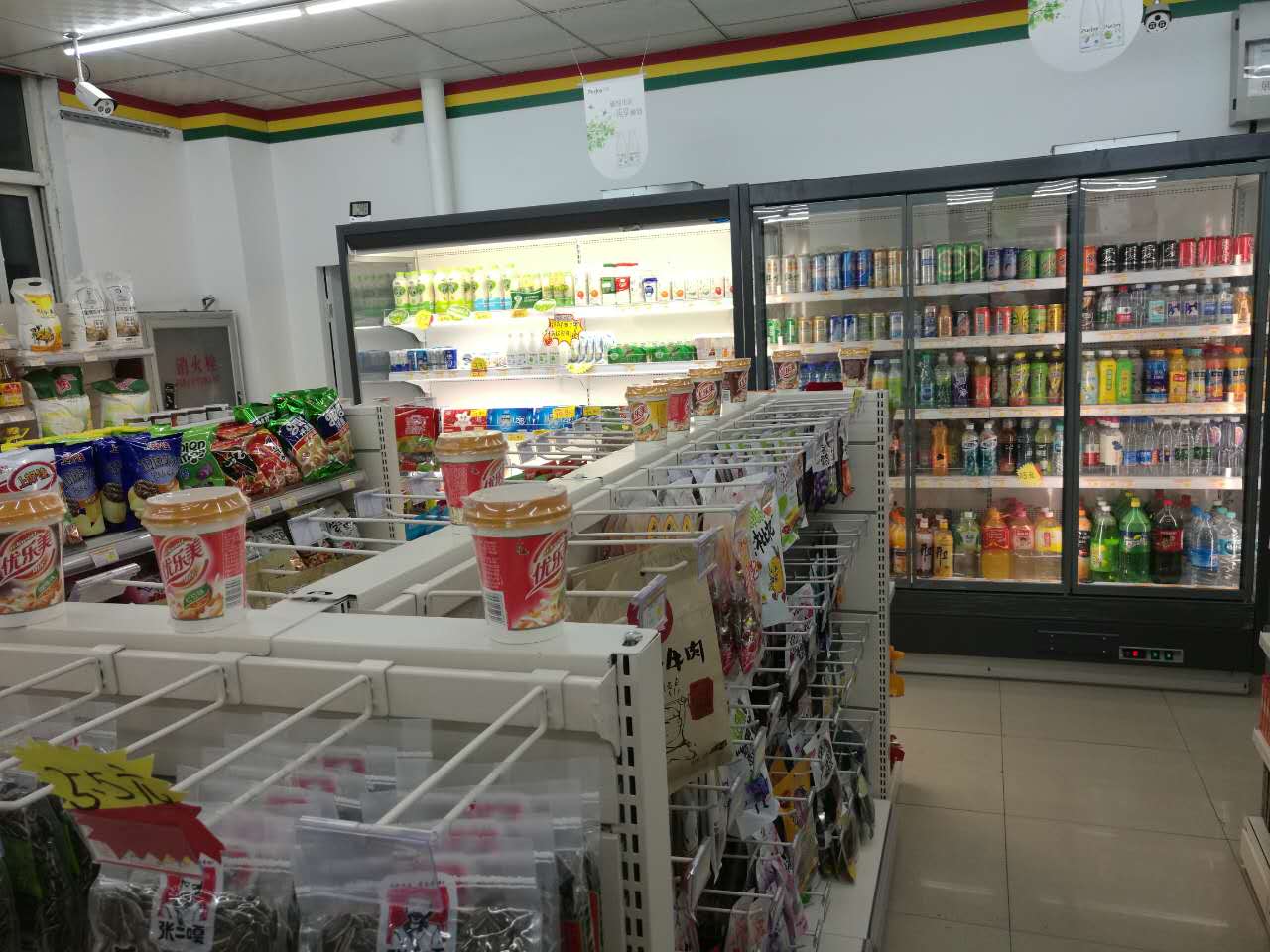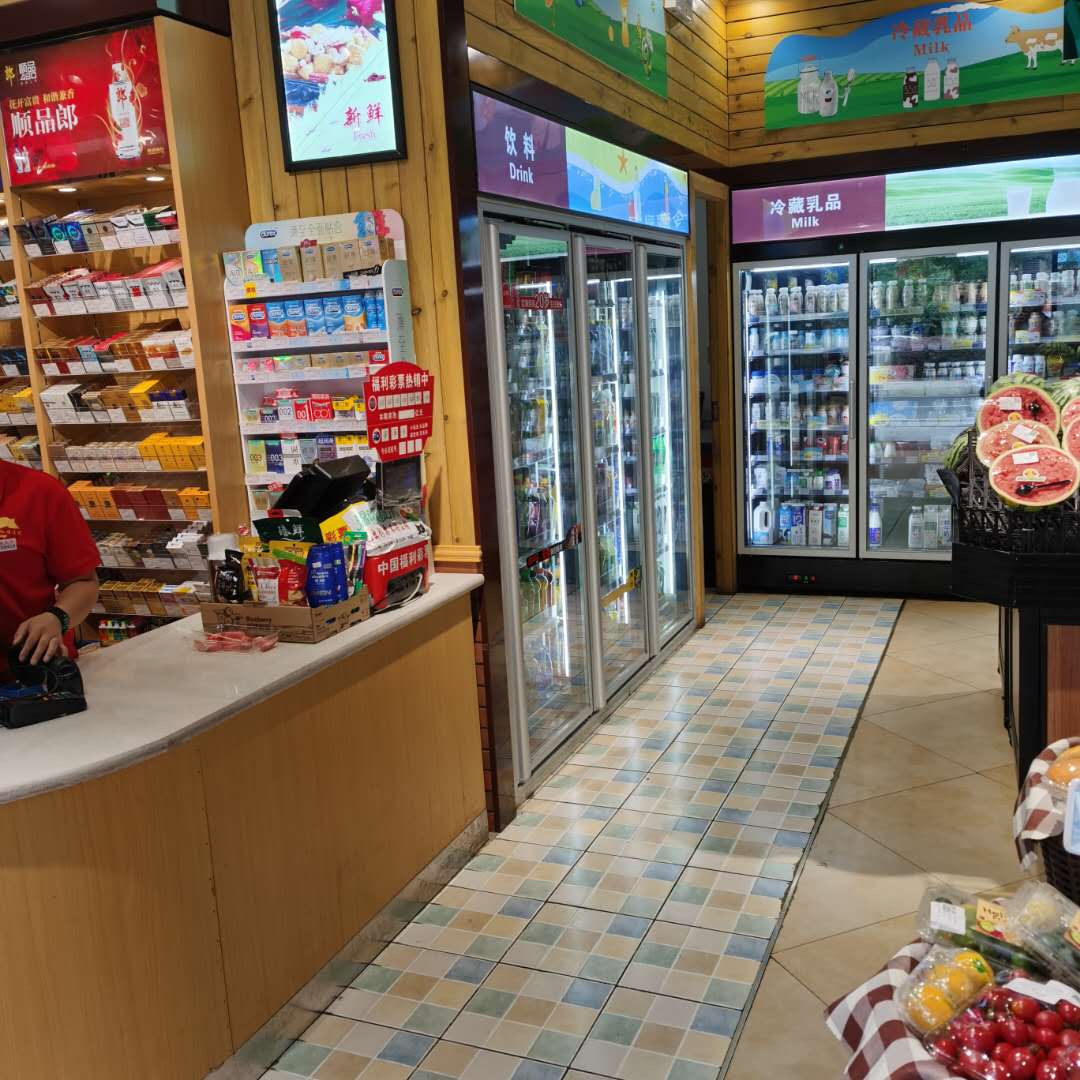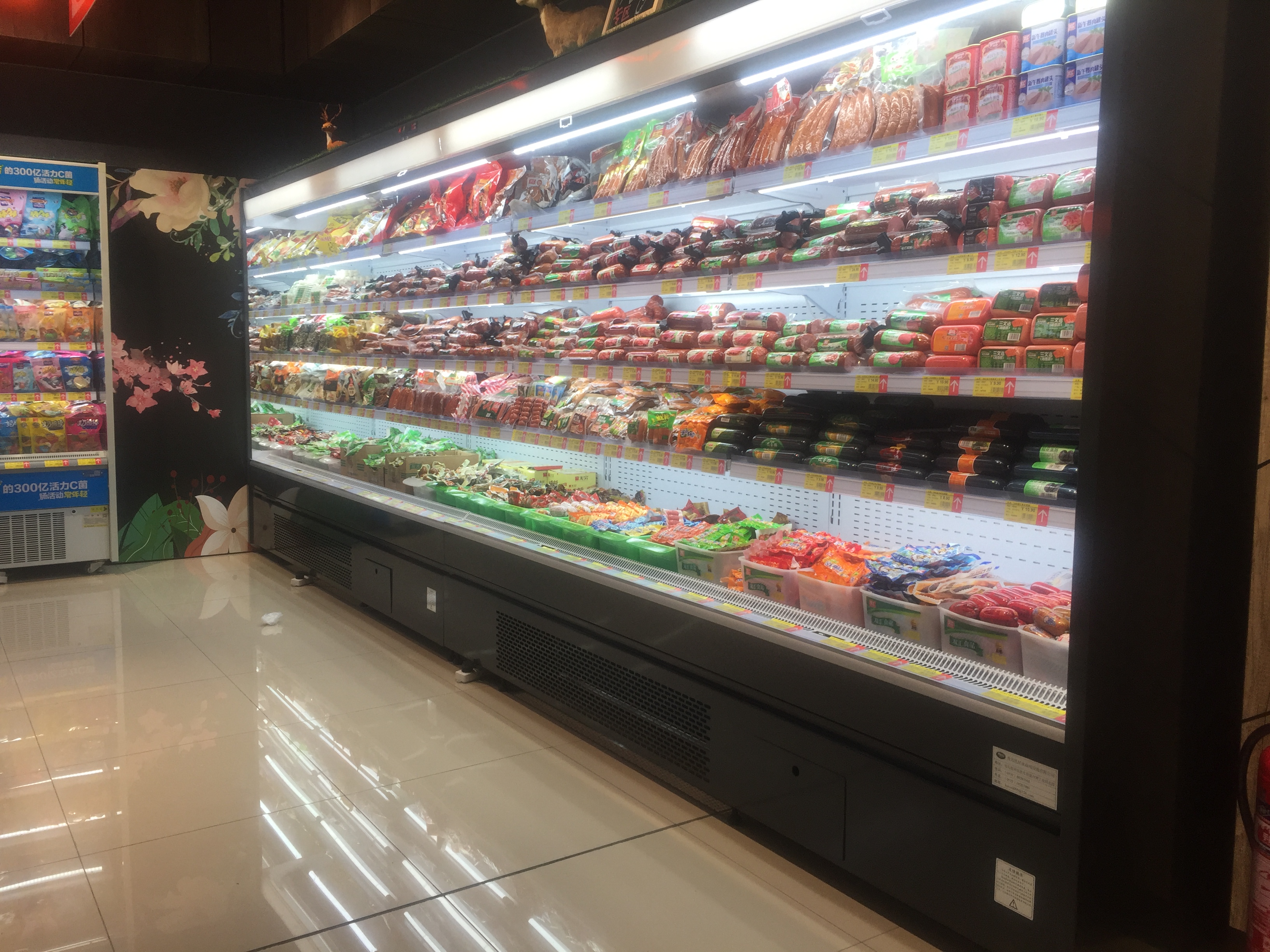Using the word rising against the trend is enough to describe the development of the convenience store industry in 2021. Despite the impact of the new crown pneumonia epidemic, convenience stores have maintained a relatively high growth rate this year. On the one hand, with the increasingly fierce market competition in first-tier cities, the sinking market has become a new battlefield for convenience stores, and many convenience store brands choose to continue to expand; on the other hand, expanding business boundaries has become a new direction for many convenience stores. From convenience to convenience, service has become a new bright spot.
The sinking and expanding trend continues
Despite the impact of the new crown pneumonia epidemic, compared with other retail formats, convenience stores have maintained a relatively high growth rate in the past two years. The “2021 China Convenience Store Development Report” released by the China Chain Store & Franchise Association shows that affected by the epidemic, in 2020, the total number of brand chain convenience store stores nationwide will exceed 190,000, with sales of 296.1 billion yuan, of which the sales of traditional convenience stores are 271.6 billion yuan, a growth rate of 6%, slowed down a lot. However, although the sales data for 2021 has not been released, from the dynamics of various convenience store companies, store expansion is still the mainstream trend.
This year, Japanese convenience stores continued the trend of last year, continuing to open stores and sink. Lawson convenience store can be said to be advancing by leaps and bounds. This year, its high-profile announcement is to expand the number of stores in China to 10,000 by 2025. In the “2021 China Convenience Store TOP100 List” released by the China Chain Store & Franchise Association, Lawson convenience stores have 3,256 stores in mainland China, and this number will be 2,707 in 2020. In addition to Lawson convenience stores, the 7-Eleven convenience store, which has always been known for its “high barriers” to join, opened quickly this year. The number of stores on the list increased from 2,147 in 2020 to 2,387 this year.
In addition, leading domestic convenience store brands such as Meiyijia, Jianfu, Tangjiu, and Bianlifeng have also continued the trend of opening stores this year, and the number of stores has continued to grow.
It is worth noting that sinking markets such as second- and third-tier cities have become “new battlefields” for convenience store companies to focus on. The industry has changed the traditional belief that “North, Shanghai, Guangzhou, Shenzhen” and coastal areas are the main living space for convenience stores. In the past two years, many inland cities have also attracted chain convenience stores. Since August this year, Lawson Convenience Stores have successively settled in many prefecture-level cities such as Tangshan, Hebei, Wuhu, Anhui, and Nantong, Jiangsu, with nearly 20 stores; 7-Eleven has opened its first stores in Dezhou, Shandong, Kunming, Yunnan and other places. In addition to Japanese convenience stores, local convenience store brands are also flexing their muscles in the sinking market: Bianlifeng opened its first stores in Foshan, Jiangsu, Xuzhou, Lianyungang and other places, and Tangjiu convenience stores entered the Zhengzhou market for the first time…
The “2021 China City Convenience Store Index” released by the China Chain Store & Franchise Association shows that the development of convenience stores in some third- and fourth-tier cities such as Huizhou in Guangdong and Putian in Fujian has been very close to the level of the mature convenience store market, and the degree of competition is no less intense. First- and second-tier cities. Cities with great development potential are rapidly being occupied by chain convenience store brands with certain strength; the development space of the convenience store market in most first- and second-tier cities has been further compressed, and the development situation is basically at the level of the total scale and the number of opening and closing stores. Maintain a balanced state as a whole.
When industry consolidation is in progress
When chain convenience stores enter the sinking market, local convenience store brands will inevitably be impacted. Some brands have resisted the pressure and chose to coexist, while others chose to be acquired and integrated.
Two acquisitions of Lawson convenience stores this year have aroused the attention of the industry. In September of this year, Rainbow Shares announced that it had signed an “Equity Transfer Intention Agreement” with Lawson Convenience Store, and planned to transfer its wholly-owned subsidiary Rainbow Wewo Convenience Store (Shenzhen) Co., Ltd. (hereinafter referred to as Tianhong Wewo) 100 % Equity. In November, Sichuan Ooo Supermarket Chain Management Co., Ltd. (hereinafter referred to as Sichuan WOWO Supermarket) was changed to Chengdu Lawson Convenience Store Management Co., Ltd., and the legal representative was changed from Lu Weiwei to Miyake Shixiu, the latter being Lawson (China) Investment Co., Ltd. The legal representative of the company, this also means that Lawson Convenience Store has acquired 100% equity of Sichuan WOWO Supermarket and officially landed on the Chengdu market.
In addition to Lawson’s large-scale acquisitions, other regional brands have also been integrated. On May 29, Guangdong convenience store brand Tianfu Convenience, which has more than 5,800 stores, completed the acquisition of the largest local convenience chain brand Haobao in Huaihua, Hunan, and the number of mergers and acquisitions was nearly 200. The two parties will jointly establish Huaihua Haoban Tianfu Commercial Co., Ltd., of which Tianfu Convenience will subscribe 6 million yuan, accounting for 60% of the shares, and Haoban subscribed 4 million yuan, accounting for 40% of the shares.
Industry insiders generally believe that the acquisition of local convenience store brands is a conventional means for chain convenience store companies to enter new markets. Most of the acquired convenience store brands have relatively flat operating conditions and lack corresponding market competitiveness to a certain extent. For example, Sichuan WOWO supermarket had 748 stores when it was acquired by Best Group in 2017, but now it has only more than 300 stores in Chengdu. Lai Yang, dean of the Beijing Institute of Commerce and Circulation Strategy, believes that it is normal for convenience store brands to have acquisition cases during the sinking process. “Now it’s time for convenience store companies to consolidate their operating capabilities and supply chain. For some local convenience store companies with insufficient development potential and extensive management models, it may not be a bad thing to be acquired.” Lai Yang said. Local convenience store brands that have simple models, and some even stay in couples’ wives’ stores or franchise flop stores, cannot cope with the escalating consumer demand of consumers and the increasingly fierce market competition. People in the industry even said bluntly that when the consolidation of the convenience store industry is underway, results may come out within three to five years.
Digitization and convenience become a trend
While the industry is consolidating, how to strengthen the viability of the convenience store brand itself has become a major challenge. Similar to traditional retail formats such as supermarkets and shopping malls, digitalization has also become the main development trend of convenience stores this year. Many brands have begun to integrate with technology, trying to use technology to help companies reduce costs and increase efficiency, and to meet consumers’ continuous upgrades. Consumer demand. Convenience store brands are actively expanding their business boundaries, taking “convenience store + N” as a new breakthrough point.
In September of this year, Guangdong 7-Eleven, which has a history of 29 years, partnered with omni-channel digital retail service provider Multipoint Dmall. Nearly 1,500 stores and three distribution centers all launched Multipoint Retail Union Cloud. , Supply chain, franchisees, warehousing and logistics to the headquarters management of the entire process, all elements of digitization. Wen Hongjie, executive director of Guangdong 7-Eleven, once stated that the digital transformation of Guangdong 7-Eleven has achieved phased results. Taking the digital transformation of the logistics center as an example, the sorting efficiency has increased by 30% after the transformation.
Tang Jiu Convenience, a leading convenience store company in Shanxi, has cooperated with Alipay to open the No. 1 Digital Convenience Store, which combines digitalization and convenience services, and brings greater imagination to convenience stores. It is reported that the store has set up a digital convenience service area for the first time. In addition to charging, free meal heating, express storage and dining space, customers can also place orders online through the Tangjiu Alipay applet, enjoy laundry delivery, used clothing recycling, etc. Personalized service. In addition, intelligent voice assistants and blue vest services will also be online for many years to provide elderly customers in the community with the latest anti-fraud information and instructions on how to use smart devices. Zhang Yuhong, deputy general manager of Tang Jiu Convenience, said that online digital services have broken through store space restrictions, allowing the “connotation” of convenience stores to expand and upgrade, moving from “convenience” to “convenience” one step closer. The person in charge of Alipay’s open platform revealed that the convenience store model will also be promoted in many places in Shanxi.
Bianlifeng has turned its dense offline stores into spatial media. Beginning in July last year, Bianlifeng has established cooperation with the movie “Yabai”, “White Snake 2: The Green Snake” and “Changjin Lake” on the publicity and distribution of the film. Not only did they broadcast the film’s promotional videos in stores, but also on social media. The interaction has increased the popularity of the movie and called on the convenience store consumer group to check in the movie.
This year is a year of integration and breakthrough for the convenience store industry. Despite the impact of the new crown pneumonia epidemic, convenience store companies are still aggressive and striving to enhance their own viability. From the region to the whole country, from convenience to convenience, and from tradition to digitalization, no matter how the industry develops, for the convenience store format, focusing on consumer demand is the constant purpose.
Post time: Dec-28-2021

